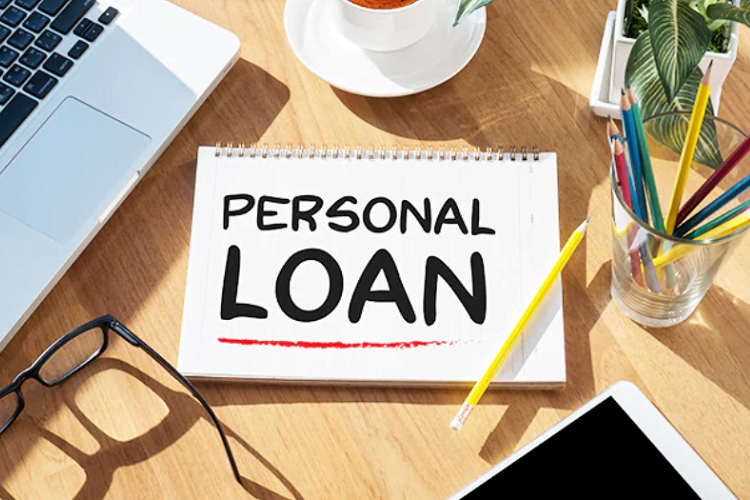Are you looking for a loan to help cover unexpected expenses or consolidate debt? Check out the different types of personal loans and see which one fits your needs best!
Personal Loans are a type of unsecured loan that individuals can take out from a bank, credit union, or other financial institution. Unlike secured loans, such as a mortgage or car loan, Personal Loans do not require collateral. This means that borrowers do not have to pledge any assets, such as their home or car, as security for the loan.

There are various types of Personal Loans available for a variety of purposes, including consolidating high-interest debt, paying for unexpected expenses, funding home improvements, or covering the cost of a large purchase. The terms and interest rates of Personal Loans vary depending on the lender, the borrower’s creditworthiness, and other factors.
To apply for a Personal Loan, borrowers typically need to provide information about their income, employment history, credit score, and other financial obligations. If approved, borrowers will receive a lump sum of money that they can use to pay for their expenses. Repayment terms for Personal Loans can range from a few months to several years, and interest rates can be fixed or variable.
Different Types of Personal Loans
There are several types of personal loans available, each with their own unique features and benefits.
- Secured Personal Loans
These loans are backed by collateral such as a car, house, or other valuable assets. Since the lender has something to recover if the borrower defaults, they are considered less risky and may offer lower interest rates.
- Unsecured Personal Loans
These loans are not backed by collateral and are based solely on the borrower’s creditworthiness. As a result, they may come with higher interest rates.
- Debt Consolidation Loans
These loans are used to pay off multiple debts, such as credit card balances or medical bills. By consolidating debts into a single loan, borrowers may be able to save money on interest and simplify their monthly payments.
- Co-signer Loans
These loans allow borrowers with poor credit or no credit history to qualify for a loan by having a co-signer with good credit sign onto the loan.
- Personal Lines of Credit
These loans allow borrowers to borrow up to a certain limit as needed, similar to a credit card. Interest is only charged on the amount borrowed, not the entire credit limit.
What’s the Purpose of a Loan?
Some purpose-based Personal Loans include:
- Personal Loan for Home Renovation
These loans are taken out to make improvements to a borrower’s home. Examples of home improvements include adding a new roof, remodelling a kitchen or bathroom, or installing new windows.
- Personal Loan for Medical Emergencies
These loans are intended to cover medical expenses, such as surgery, dental work, or other medical treatments.
- Personal Loan for Travel
These loans are used to finance vacations, including travel expenses, accommodations, and other related costs.
- Personal Loan for Wedding
Wedding Loans are used to pay for the expenses associated with getting married, such as venue rentals, catering, and decorations.
Things to Know Before Taking a Personal Loan
When choosing a Personal Loan offer, it’s important to consider a few factors to ensure you get the best deal possible. Here are some tips to help you choose the best Personal Loan offer:
- Check the Interest Rates
Interest rates vary from lender to lender, so it’s essential to compare rates to get the best deal. Look for a lender that offers a competitive interest rate and low fees.
- Look at the Loan term
Consider the loan term and whether it is feasible for you. A shorter loan term usually means higher monthly payments, but you’ll save on interest charges in the long run. A longer-term loan will have lower monthly payments, but you’ll pay more in interest charges over the life of the loan.
- Check for Prepayment Penalties
If you plan to pay off your loan early, check whether there are any prepayment penalties. Some lenders may charge a fee if you pay off your loan before the due date.
- Consider the Loan Amount
Look for a lender that offers the loan amount you need. Avoid borrowing more than you need, as this will result in higher interest charges and monthly payments.
- Check Your Credit Score
Your credit score will determine the interest rate you qualify for. Check your credit score and improve it if necessary to get a better interest rate.
- Read the Fine Print
Make sure you read the loan agreement thoroughly and understand the terms and conditions. Check if there are any hidden fees or charges.
By considering these factors, you’ll be able to choose the best Personal Loan offer that suits your needs and financial situation.
Conclusion
Personal loans are a great way to finance large purchases or consolidate debt. We described different types of Personal Loans.
Unsecured personal loans do not require collateral and can be used for any purpose but typically have higher interest rates than secured options like car title or home equity loan products.
Secured loan products may offer lower interest rates but will require some form of collateral such as a vehicle title, real estate property, stocks/bonds etc., which could be seized if the borrower defaults on payments.
Other specialized types include peer-to-peer lending platforms which allow borrowers to connect directly with lenders who provide unsecured financing at competitive terms; student loan refinancing options that help graduates manage their college debt more effectively; and short term installment plans designed for emergency expenses that must be paid off within a few months time frame.



